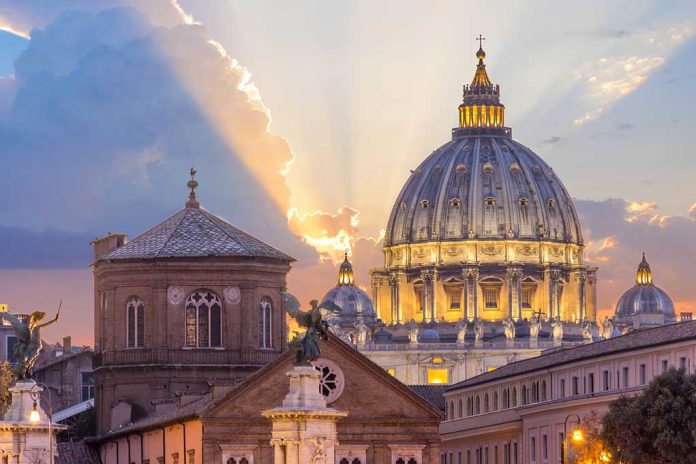
The race to succeed Pope Francis has intrigued bettors worldwide, driving millions in wagers on betting platforms predicting the next leader of the Catholic Church.
Key Takeaways
- Cardinals Parolin and Tagle are frontrunners in the race.
- Millions wagered on the Vatican conclave over several betting platforms.
- Pietro Parolin leads betting markets with 15-8 odds.
- Betting markets struggle with accuracy due to the conclave’s secretive nature.
The Vatican Conclave and Its Top Contenders
Papal succession is once again under global scrutiny as 133 cardinals gather in the Sistine Chapel to choose Pope Francis’s successor. Cardinal Pietro Parolin, an Italian Vatican diplomat, emerges as a leading candidate with 15-8 odds favoring him. Meanwhile, Cardinal Luis Antonio Tagle from the Philippines follows as the second favorite with odds of 5-2. Both figures represent possible compromises in the ever-complex ecclesiastical landscape.
The conclave sees strong contenders from diverse regions with Cardinal Peter Turkson from Ghana, Cardinal Matteo Zuppi from Bologna, and others like Pierbattista Pizzaballa engaged in private balloting. Each of these candidates brings varying strengths, appealing to different factions within the Church, making the ultimate choice both highly significant and unpredictable.
Betting Platforms and Public Interest
The secrecy of the Vatican conclave hasn’t deterred public interest in betting markets such as Polymarket and Kalshi, even with their limitations. These platforms have drawn millions in wagers as hopeful bettors place their bets not just on who will be next pope, but many aspects of the conclave’s unfolding – from potential papal names to the nationality of the successor.
“Current betting odds, favoring cardinals like Parolin and Tagle, probably reflect general perceptions, media attention and public profile rather than special insider knowledge or highly accurate predictive insight,” said Leighton Vaughan Williams, an economics professor at the UK’s Nottingham Business School.
Despite the activity, the papal betting market remains small compared to major events like U.S. elections, which draw billions. Harry Crane, a statistics professor, comments on its relatively small size, indicating the speculatory nature of these markets.
Challenges in Predicting Outcomes
Success in betting on the papal election remains elusive. The conclave’s nature presents an unpredictable scenario, with confidentiality at its core. Unlike political elections, where data can be mined and trends observed, the conclave relies heavily on the personal dynamics among the cardinals themselves, making outcomes uncertain.
Cardinals have little time to finalize their decision, beginning their secretive ballot each day at 4:30 p.m. Rome time. The world’s eyes remain fixated on the Vatican for the smoke signal emitted—black indicating no decision, white announcing the new pope. As betting markets follow, many will closely watch not just for the decision but also how the odds pan out against the conclave’s conclusion.
The election of a new pope is poised to shape the journey of the Catholic Church for years. Whether the forecasts from wagers and odds ring true, remains to be seen as the Vatican’s antiquated yet venerable process continues to unfold behind closed doors.





